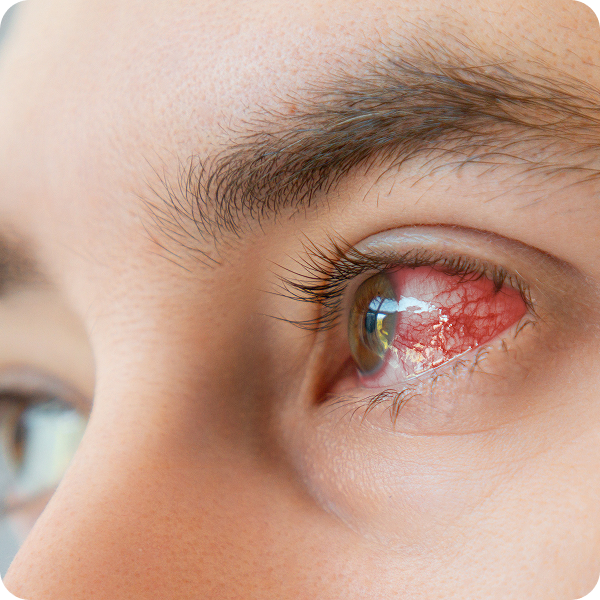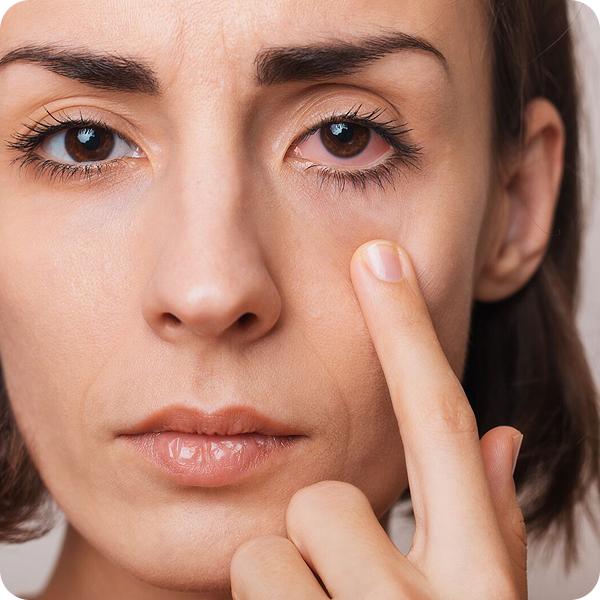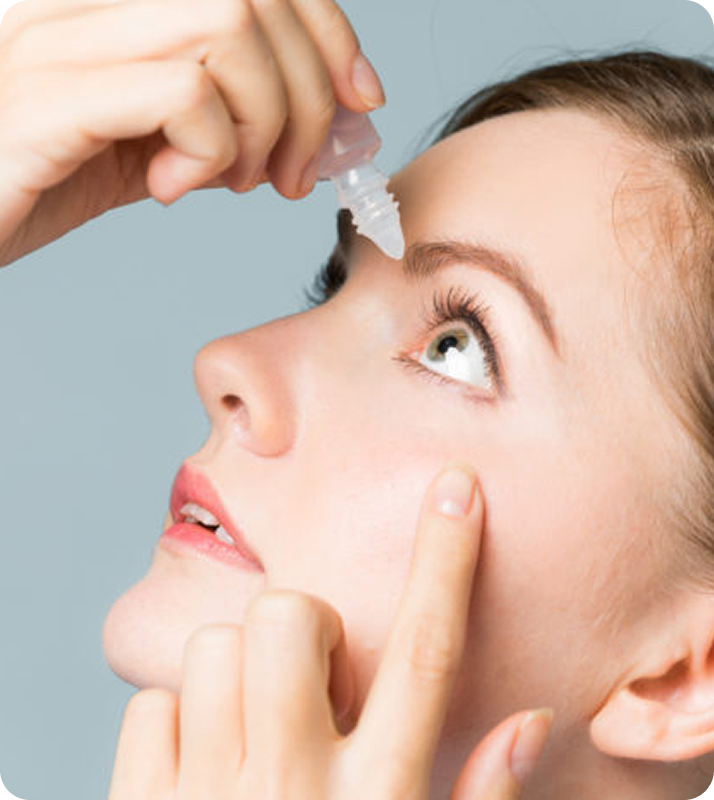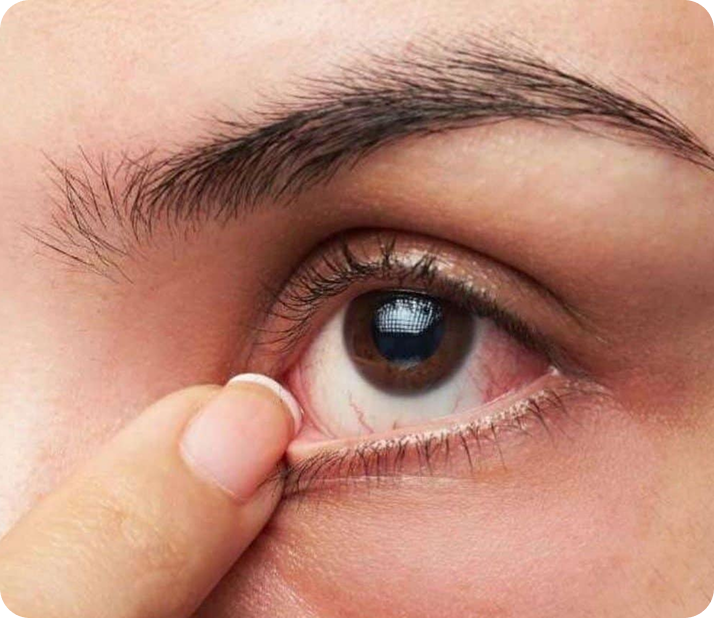
How can I tell if I have Sjogren’s Syndrome?
Patients with Sjogren’s complain of feeling like their eyes have dust or sand in them. This dryness makes the eyes feel oddly “gritty,” which can in turn cause an itching or burning sensation. The dry mouth symptoms associated with Sjogren’s can make it difficult to swallow or speak. You might feel like you have something fuzzy in your mouth. Dry eyes and dry mouth are not the only issues that patients with Sjogren’s Syndrome report. Other less common symptoms include skin rashes, joint pain, coughing, and tooth decay. The symptoms are usually secondary to eye and mouth dryness.
Finding Relief with Scleral Lenses for Sjögren’s Syndrome
Living with Sjögren’s Syndrome means managing a long list of symptoms, but for many people, it’s the dry, irritated eyes that become the most disruptive. Eye drops can help, sometimes, but the relief doesn’t always last. That’s where scleral lenses come in. These specialized lenses are designed differently from standard contacts. Instead of sitting directly on the cornea, they vault over it, creating a small reservoir of fluid that stays in place throughout the day. That constant layer of moisture can bring noticeable, lasting comfort to eyes that are often inflamed and sensitive.
What many patients appreciate most about scleral lenses is how well they protect the eye. Everyday things like wind, dust, or even a fan can make dry eyes unbearable. Scleral lenses cover more of the eye's surface, shielding it from those irritants while also reducing friction caused by blinking. Because each lens is made specifically to fit the individual’s eye shape, the fit tends to be stable and secure, which makes a big difference when your eyes are already prone to discomfort.
There’s also the bonus of improved vision. With Sjögren’s, the cornea can become so dry that vision becomes blurry or inconsistent throughout the day. Scleral lenses help by creating a smooth, optically clear surface over the eye. That alone can lead to sharper, more reliable vision, especially for people who’ve struggled to find effective treatments. It’s not a cure for the condition, but for many, these lenses are one of the few things that make life a little easier.

How is Sjogren’s Syndrome treated?
Unfortunately, there is no true “cure” for Sjogren’s Syndrome. Because doctors don’t completely understand the cause of the condition, it is difficult to eradicate it. However, there are treatments that can help patients live normal lives despite the disease. These treatments primarily seek to restore moisture and lubrication throughout the body. Eye drops and artificial tears are common treatments to restore eye moisture. Medications to stimulate saliva production are common to treat mouth dryness.
Before a patient adopts a treatment regimen, a professional must establish a firm diagnosis. Be open with your doctor. If you have eye dryness that is accompanied by dry mouth, sore joints, or other symptoms of Sjogren’s Syndrome, be sure to bring those symptoms up. What seem like mild or temporary symptoms might be more relevant to your long-term health than you think.



